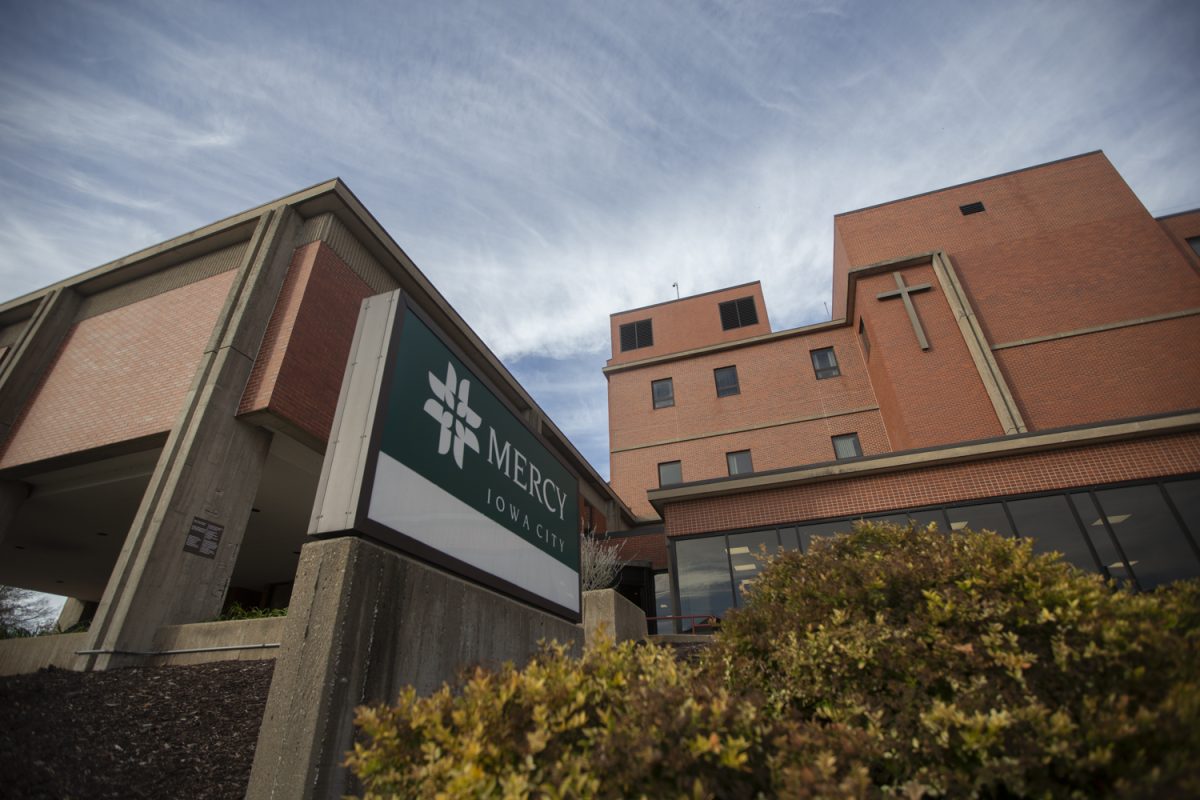lmost a month after a bankruptcy court approved the sale of Mercy Iowa City to the University of Iowa, lawyers for both sides are collecting fees accrued for working on the case.
The most notable of these is Chicago-based law firm McDermott Will & Emery, which worked for Mercy Iowa City during the bankruptcy proceedings.
The entire process began when Mercy filed for bankruptcy in August, and culminated with the sale approval in November. McDermott Will & Emery represented Mercy during this time and accrued over $2 million in legal fees.
In court filings, the firm applied for compensation to the tune of $922,897.50 for work done between Aug. 7 and Aug. 31. Another court filing showed that for the work done in September, the firm had submitted an application requesting at least $811,378 in fees.
The firm then submitted an application of $563,710 for work done in October. Adding up the money from the applications, the firm requested roughly $2,297,985.50 for the work it did from August to October.
The firm has not made any applications for fees from November yet.
Fee objections
Filings with the bankruptcy court also show that there have been objections to the money being requested by McDermott Will & Emery.
The compensation applications come after the prolonged bankruptcy proceedings of Mercy Iowa City. In August, the local hospital filed for bankruptcy due to its financial state, coming after the hospital’s creditors took it to court in an attempt to place the hospital in a receivership.
Shortly after announcing bankruptcy, the UI released a statement that said it was planning on acquiring the hospital in a bid worth $20 million and would seek approval from the Iowa Board of Regents.
The next day, the regents held a meeting to discuss the proposal, where they unanimously approved it. The UI and Mercy then filed a joint statement to the bankruptcy court indicating their intention for the UI to acquire the hospital.
In September, Mercy was placed on the auction block, with the UI placing the first bid, which was a “stalking horse bid.” This bid allowed the UI to set the floor price for Mercy, meaning any other interested parties would have to bid more.
The deadline for bids was in October, and as it approached, court filings revealed that the UI would receive the hospital unopposed if no other bids were made.
But right before the deadline, another unidentified party joined the proceedings, submitting a bid that was at least worth $2.8 million. With competing bids made, the hospital would go to an auction proceeding that involved reviewing the bids made and selecting a winner based on which bid it preferred.
Preston Hollow Community Capital, one of the bondholders that had initially attempted to place Mercy in a receivership, won the bid on Oct. 10. Upon the revealing of the winner, Preston Hollow released a statement that said it planned to have the hospital continue its operations.
Preston Hollow had made the bid in partnership with American Health Systems, which the statement said would be running the hospital while Preston Hollow and its investors would provide the funding. Preston Hollow’s bid, according to court documents, was worth $29 million, with an additional $1 million as an incentive to convince Mercy to pick them.
In an interview with The Daily Iowan, UI President Barbara Wilson said she was disappointed by the outcome, but was happy that the hospital would remain in operation.
However, the saga had another surprise twist as 17 days later, on Oct. 27, the result was reversed and the UI would be declared the winner.
According to court filings, the change came about after Preston Hollow refused to pay the debts of the hospital if it were to acquire Mercy.
The UI’s bid was worth roughly $28 million and included commitments of $25 million for facility upgrades and $23 million for salaries and benefits for Mercy employees.
A press release from after the UI was announced as the winner stated that the two entities would merge in 2024, but that it would be business as normal for the hospital in the meantime.
Although the UI agreed to pay off the hospital’s debt, its bid does not say the same about paying for any legal fees accrued during the bankruptcy proceedings. This means that Mercy will have to pay out of pocket for those fees, as well as any debt obtained before Dec. 1.



